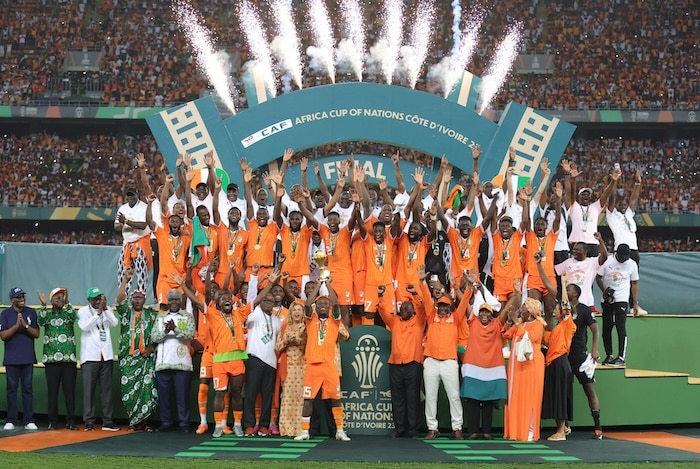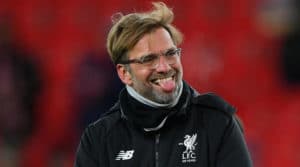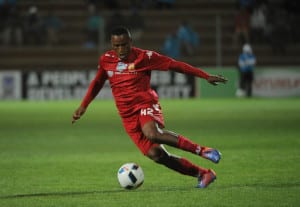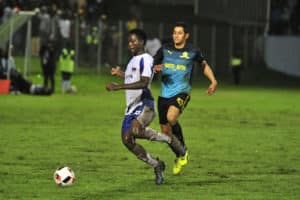Sebastien Haller netted a dramatic late winner as hosts Ivory Coast came from behind to secure a 2-1 victory over Nigeria in the final of the Africa Cup of Nations on Sunday evening.
At the Ebimpe Olympic Stadium, Nigeria appeared to be headed for another 1-0 group stage triumph over the Ivorians when captain William Troost-Ekong, who had scored a penalty to settle the first meeting, lifted his head in the first half.
But soon after the hour, Franck Kessie equalised, and in the 81st minute, Haller converted Simon Adingra’s cross, setting off wild celebrations among the sea of orange in the Abidjan stands.
With this victory, Ivory Coast can now add the Cup of Nations trophy to the ones they won in 1992 and 2015 and join Nigeria on three victories overall.
Over the past month, the Nigerian team, led by Osimhen, the current African player of the year, has appeared to be the most fearsome side in the game.
Ivory Coast became the first host nation to win the AFCON since 2006, but their feeling of destiny was just too strong.
18 years ago, Didier Drogba led the Elephants squad that fell to Egypt in the final on penalties in Cairo. This time, he was one of the spectators to watch his nation pull off an incredible victory.
“It is greater than a fairytale,” said coach Emerse Fae, who took over a stricken team mid-tournament.
“I am struggling to take it all in. When I think about all we have been through, the difficult moments, moments when we were behind, when we came back in the last minute of games.
“We are miracle survivors.”
It is a remarkable accomplishment for a team that, following their 4-0 loss to Equatorial Guinea on January 22, was almost eliminated from the group stage.
Following their most severe home loss to date, the Ivorians fired coach Jean-Louis Gasset and brought in Fae, Drogba’s 2006 colleague.
After that, they started an incredible comeback that saw them defeat Mali with a last-minute goal in extra time, eliminate holders Senegal on penalties, and defeat DR Congo thanks to a goal from Haller in the last four.
The stadium could only hold 60,000 spectators due to the large number of their followers, forcing many of them to watch from vantage points on stairways.
It may have been argued, by anyone wishing to temper expectations, that Cup of Nations finals are typically low-scoring matches.
In the previous 11 finals, just 10 goals were scored; five of those ended in penalties following a scoreless draw.
In fact, the last four final appearances by Ivory Coast had all finished in a draw before advancing to penalties, which they had won two of them.
Early on, it appeared that this would be another nerve-wracking, low-scoring match with very few opportunities.
But in minute 34, Nigerian custodian Stanley Nwabali denied a fantastic chance for the home team when Kessie found Adingra on the left.
That proved to be crucial because four minutes later, Troost-Ekong headed in from the edge of the six-yard box after Ademola Lookman’s corner from the left was touched on.
In a situation like this earlier in the competition, the Ivorians would have collapsed, but they deserve a lot of credit for rallying and going all out against Nigeria.
Five minutes after the restart, Calvin Bassey stopped Max-Alain Gradel’s netbound attempt in front of the line, and on minute sixty-two, Nwabali deflected a long-range piledriver from Odilon Kossounou around the post.
With a corner that followed, they levelled the score thanks to an appearance at the back post by Kessie, whose late penalty had saved the hosts against Senegal in the round of 16.
With nine minutes remaining in the match, Haller got his studs to Adingra’s cross and redirected the ball into the far corner, resulting in the second goal for the Ivory Coast. It seemed inevitable that this would happen.
For the first time since their first game, Nigeria was behind, and Ivory Coast held on to win.
“Ivory Coast were better than us today,” admitted Nigeria coach Jose Peseiro.
“I am sad, my team is sad, but for me they did the maximum, each one. Sometimes you want to do something but you cannot do it.”
Photo by Samuel Shivambu/BackpagePix





